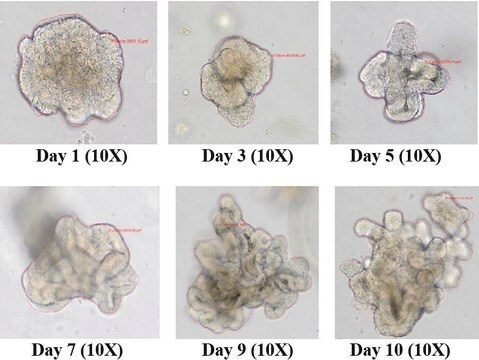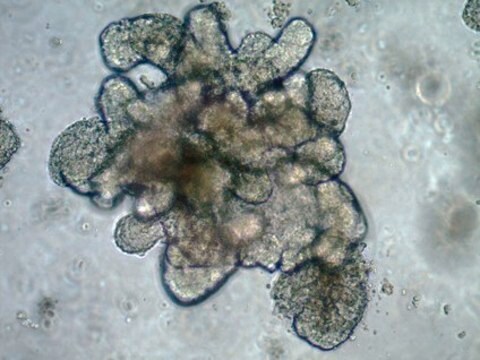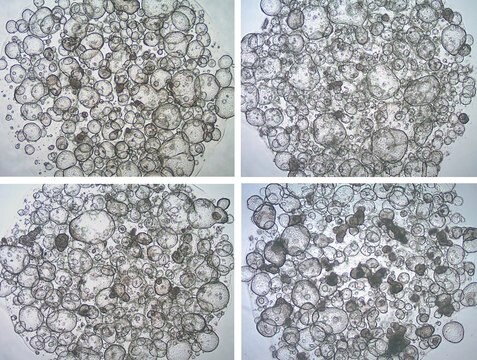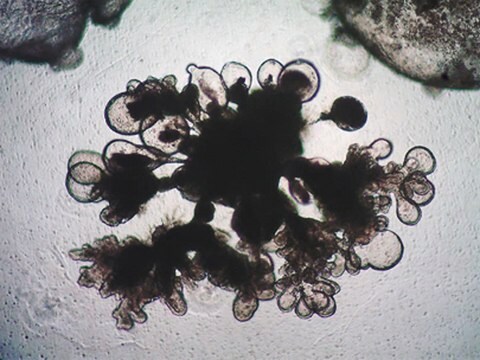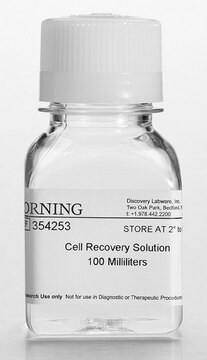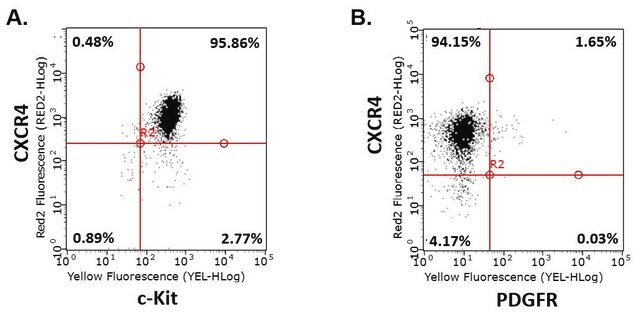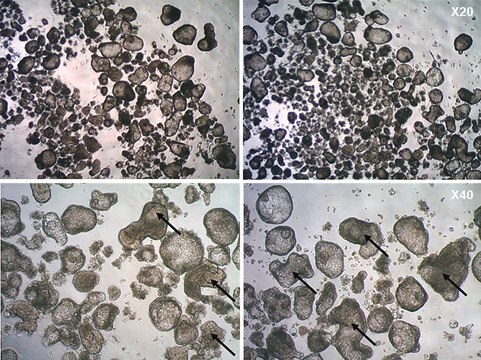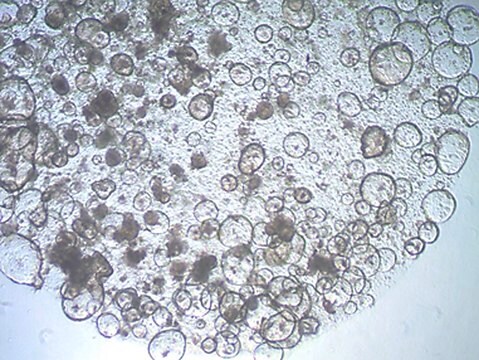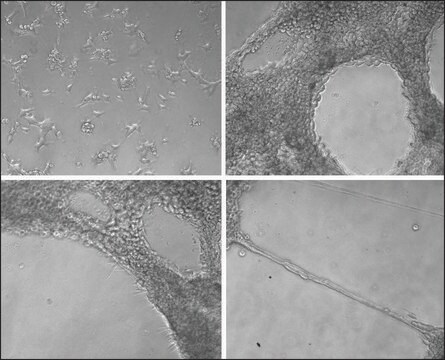SCM300
3dGRO® Organoid Dissociation Reagent
Chemically defined enzyme-free organoid dissociation solution.
Sinónimos:
Organoid passaging reagent
About This Item
Productos recomendados
formulario
liquid
técnicas
cell culture | stem cell: suitable
Descripción general
• Similar composition and architecture to primary tissue: Organoids harbor small population of self-renewing stem cells (such as intestinal crypt stem cells) that can differentiate into cells of all major cell lineages, with similar frequency as in physiological conditions.
• Relevant models of in-vivo conditions: Organoids are more biologically relevant to any model system and are amenable to manipulate niche components and gene expression.
• Stable system for extended cultivation: Organoids can be cryopreserved as biobanks and expanded indefinitely by leveraging self-renewal and the differentiation capability of the stem cell populations.
The 3dGRO Organoid Dissociation Reagent is a proprietary chemically defined enzyme-free dissociation solution used to passage multiple organoid cell types (etc. mouse intestinal organoids, human colon and lung organoids). Due to its chemically defined nature, the reagent produces consistent organoid passaging results. 3dGRO Organoid Dissociation Reagent can be used in combination with the 3dGRO R-Spondin-1 Conditioned Media Supplement (SCM104) to isolate and passage primary intestinal organoids from mice or in combination with the 3dGRO Human iPSC Derived Colon Organoid Expansion Medium (SCM304) to expand human iPSC derived colon organoids (SCC300).
Aplicación
Cell Culture
Stem Cell Research
Calidad
Osmolality: 340-370 mOsm
Sterility Tested: No Growth/Pass
Endotoxin; <2 EU/ml
pH: 7.2-7.4
Almacenamiento y estabilidad
Información legal
Cláusula de descargo de responsabilidad
Código de clase de almacenamiento
12 - Non Combustible Liquids
Clase de riesgo para el agua (WGK)
WGK 2
Punto de inflamabilidad (°F)
Not applicable
Punto de inflamabilidad (°C)
Not applicable
Certificados de análisis (COA)
Busque Certificados de análisis (COA) introduciendo el número de lote del producto. Los números de lote se encuentran en la etiqueta del producto después de las palabras «Lot» o «Batch»
¿Ya tiene este producto?
Encuentre la documentación para los productos que ha comprado recientemente en la Biblioteca de documentos.
Los clientes también vieron
Artículos
Human epithelial intestinal colonic organoids can be used as an alternative to Caco-2 drug permeability assays for drug screening and compound toxicity testing.
Organoid culture FAQs. Learn how to culture and analyze organoids following established 3D cell culture protocols. Tips and tricks.
Organoid culture products to generate tissue and stem cell derived 3D brain, intestinal, gut, lung and cancer tumor organoid models.
Protocolos
How to stain organoids? A complete step-by-step protocol for immunofluorescent (IF) and immunocytochemical (ICC) staining of organoid cultures using antibodies
A rapid in vitro assay for CFTR function, the forskolin-induced swelling protocol uses human colon organoids, which can be derived from cystic fibrosis patient tissue.
Highly characterized cryopreserved human colonic organoids and a step-by-step organoid culture protocol for epithelial intestinal organoid differentiation from iPS cells.
Nuestro equipo de científicos tiene experiencia en todas las áreas de investigación: Ciencias de la vida, Ciencia de los materiales, Síntesis química, Cromatografía, Analítica y muchas otras.
Póngase en contacto con el Servicio técnico